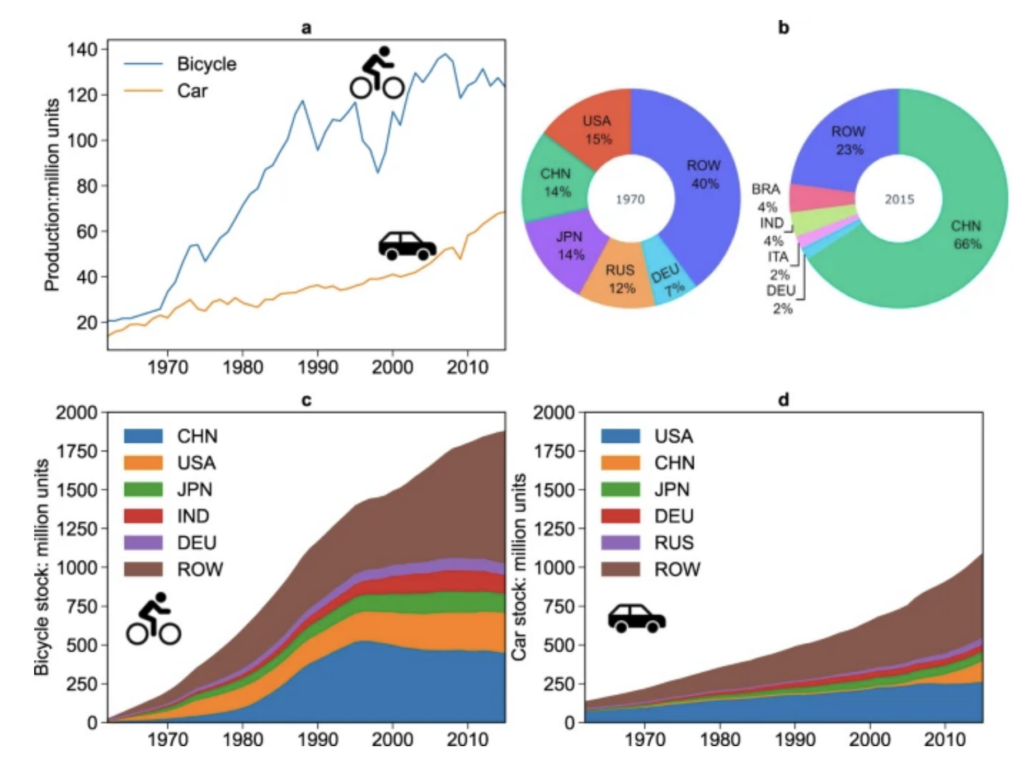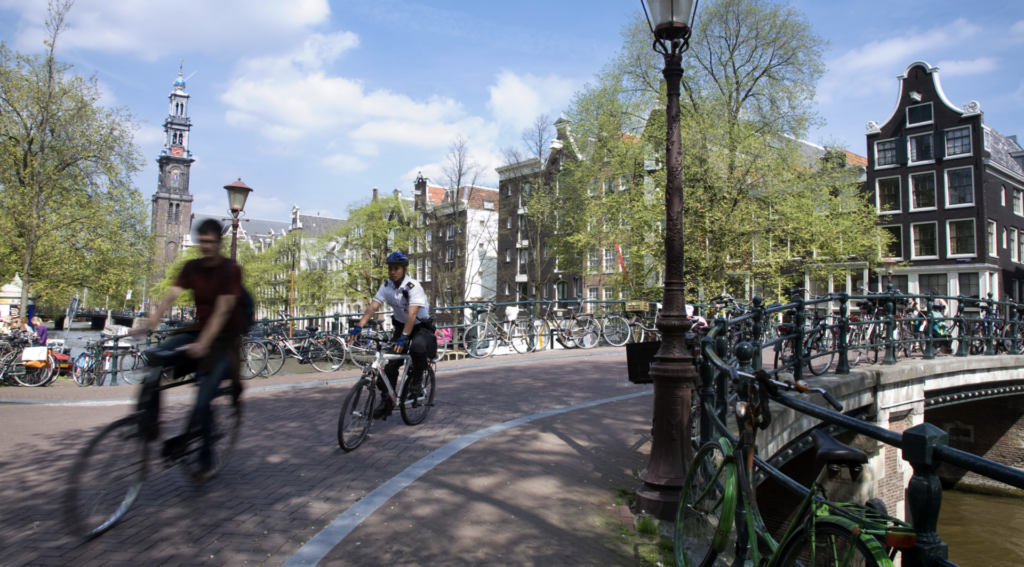The world could cut carbon dioxide emissions by almost 700 million tonnes each year – equivalent to Canada's annual emissions – if everyone cycled every day as the Dutch do, according to a study published in the journal Communications Earth and Environment.
The transport sector accounts for a quarter of all current greenhouse gas emissions and global transport demand is expected to triple by mid-century.
Half of these emissions now come from cars whose sales are closely monitored for decades – unlike bicycles. Now, international team of researchers has compiled the first global database on bicycle ownership and use in 60 countries since the early 1960s.
According to the researchers, over the period 1962-2015, the number of bicycles produced exceeded that of cars with China accounting for nearly two-thirds of the more than 123 million bicycles produced in 2015.
Practical or pleasure?
Despite being around far longer than cars, bicycles have been widely superseded as a practical mode of transport, with people in many regions preferring cars, whether in the belief that they are more useful, faster, or as a status symbol.
With some notable exceptions, many nations have long disregarded bicycles when creating policies that push the use of motorised vehicles, often creating an environment that is ill-suited or simply inhospitable to cyclists.

Global growth of bicycle and car production and stock, 1962–2015. Credit: Communications earth & environment
In the 60 countries surveyed, the share of bicycle use for daily travel was only 5% on average. In some countries, such as the United States, the number of bicycles is high but their owners tend to see cycling more as a leisure activity than as a mode of daily transport and short journeys are often made by car.
But if everyone cycled an average of 1.6 kilometres a day – the average daily distance for Danes – the world would cut CO2 emissions by some 414 million tonnes a year – equivalent to Britain's annual emissions, the researchers calculate.
In the Netherlands, people cycle an average of 2.6 kilometres a day. If the whole world were to do so, emissions could be reduced by 686 million tonnes of CO2 a year. And this is before the improvements to public health and air quality are factored into the equation.
Related News
- E-bikes: Tips on caring for your bike’s battery
- Two-thirds of Flemish municipalities have at least one cycle-friendly street
- Cycle counters: Key to promoting bikes in Brussels
Gang Liu, lead author of the study and a professor at the University of Southern Denmark's department of green technology, told AFP that the main interest is to show that cycling has an important role to play in reducing the carbon footprint of transport. He noted that the debate tends to focus on the electrification of cars.

